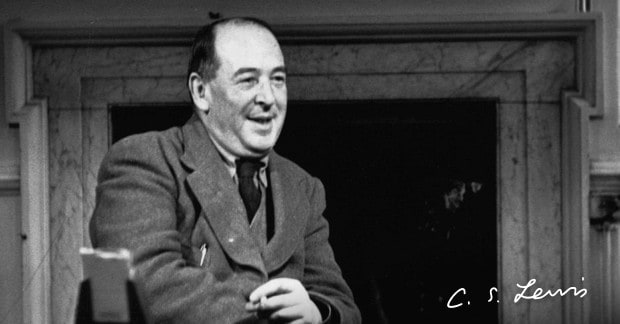C.S. Lewis is one of the modern Christianity’s greatest writers. Whether a pastor or a layperson, believers have sought counsel with Lewis regarding depression, spiritual warfare, or simply to increase their faith in Jesus. His most famous works, including Mere Christianity and The Screwtape Letters, are appreciated for their humor and defense of the Christian faith. However, in recent years, his work The Abolition of Man has not received attention like his other, more accessible writings. Christians should heed Lewis’ warnings against the rising tide of relativism that is sweeping the world.
Lewis contra subjectivism
Christians find themselves in the midst of a world at war with truth. Whether it be politics, economics, or religion, the commonly accepted belief is “what’s good for me is good for me and what’s good for you is good for you.” While we can agree it is better to live “peaceably with all” (Rom 12:18), Christians also know that some matters cannot be left up to individuals based on their preferences.
Lewis sounded the call against relativism in his own time in his book The Abolition of Man. His attack began after reading a textbook sent to him for evaluation. Although we do not know its title (Lewis offers a pseudonym to protect the authors), Lewis refers to the work as The Green Book. He takes to task the authors for suggesting that when one says that something is sublime, they are merely stating that they have sublime feelings about the subject. Lewis drives at the heart of the issue: “The schoolboy who reads this passage in The Green Book will believe two propositions: firstly, that all sentences containing a predicate of value are statements about the emotional state of the speaker, and secondly, that all such statements are unimportant” (The Abolition of Man, 4).
For Lewis, statements made about reality do not merely reflect one’s feelings about that reality. Rather, when someone states that something is “beautiful” or “ugly,” “fun” or “boring,” “good” or “evil,” that person is making a statement about reality and not about his or her feelings.
Pulling out the rug
Lewis is not content with rejecting The Green Book’s view of reality as an untrue and dangerous idea. He exposes its reliance on an objective understanding of the world as the final nail in the coffin. “However subjective they may be about some traditional values, Gains and Titius have shown by the very act of writing The Green Book that there must be some other values about which they are not subjective at all. They write in order to produce certain states of mind in the rising generation, if not because they think those states of mind intrinsically just or good, yet certainly because they think them to be the means to some state of society which they regard as desirable” (The Abolition of Man, 27).
In the end, The Green Book cannot provide a better vision of how to understand the world nor one’s feelings since it operates upon the older, objectivist worldview which it attempts to explain away.
Beyond good and evil?
What do ideas concerning beauty and reality have to do with Christianity? In one way, whether or not something is truly beautiful has no bearing on our salvation found in Christ Jesus. He has come to save us from the wrath to come, and our ideas of beauty will not ultimately nullify the promise of “I will never leave you or forsake you” (Heb 13:5). However, understanding that truth and falsehood are not merely in the eye of the beholder is potentially lifesaving for billions of unsaved people across the globe.
Denying the existence of absolute truth makes religion and things unseen merely a matter of preference. How often have our friends and family hidden behind catchphrases such as, “That’s just what I believe” or “What’s true for you isn’t necessarily true for me”? Behind those seemingly innocent remarks lies the fatal belief in a reality that we craft out of our own desires, will, and passions. Christians must help others see that behind the shroud of personally held beliefs lies truth (the truth) that is more beautiful and satisfying than they could ever imagine.
What is at stake when it comes to the discussion of absolute truth? It is not gratification that we have won a Facebook debate or that our ideas are applauded. What is at stake is the soul of our unbelieving neighbor, friend, or family member. Lewis helps us to understand that at the bottom of it all, ideas about truth have eternal consequences.
***
Grab the C.S. Lewis Collection now.
For more posts about Lewis, see below:
9 Shareable C.S. Lewis Quotes
Look. Listen. Receive. C.S. Lewis on Reading





